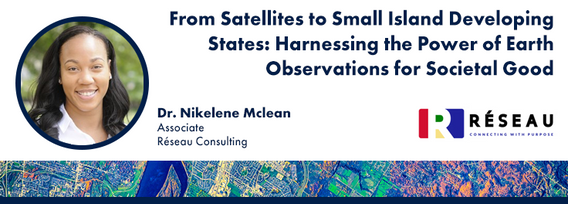From Satellites to Small Island Developing States: Harnessing the Power of Earth Observations for Societal Good

My Session Status
What:
Talk
When:
9:30 AM, Wednesday 14 May 2025
(30 minutes)
Where:
Ottawa Conference and Event Centre
- Earth Observation
Advancements in Earth Observation
In recent years, we have observed more severe storms, increased instances of drought, rapid sea level rise and higher temperatures than ever recorded in history. These phenomena, largely associated with climate change, negatively impact marine and terrestrial ecosystems and have a devastating impact on lives and livelihoods among many communities worldwide. It is important to note however that although the impacts of climate change can be observed on a global scale, its effects are not proportionately distributed among the world’s nations. Small Island Developing States (SIDS) of the Caribbean Sea, Atlantic, Pacific, and Indian Oceans are at significantly higher risk to the effects of sea-level rise, coastal hazards, habitat degradation, and coastal erosion than other nations, despite their negligible contribution to the causes of these phenomena. The degradation of the coastal and marine environment in these vulnerable communities is poised to continue unless measures are taken to mitigate the impacts of climate change. To develop appropriate management strategies and effective environmental policies, we must first be able to improve our understanding of the threats to these resources. Earth observations can be used as a powerful tool to support a wide range of decisions necessary to support the resilience of vulnerable coastal communities and adjacent marine resources among SIDS. Applications of Earth observations include; measuring and monitoring sea level rise, delivering data and information required to prepare, forecast, mitigate, and recover from disasters, providing data on sea surface temperatures, the occurrence of harmful algal blooms, and other phenomena that may harm marine biodiversity, as well as a host of other applications. Geospatial data collected on the world’s oceans and coasts can be used as a powerful tool in supporting SIDS’ efforts to improve their nations’ resilience to the risks posed by climate change.